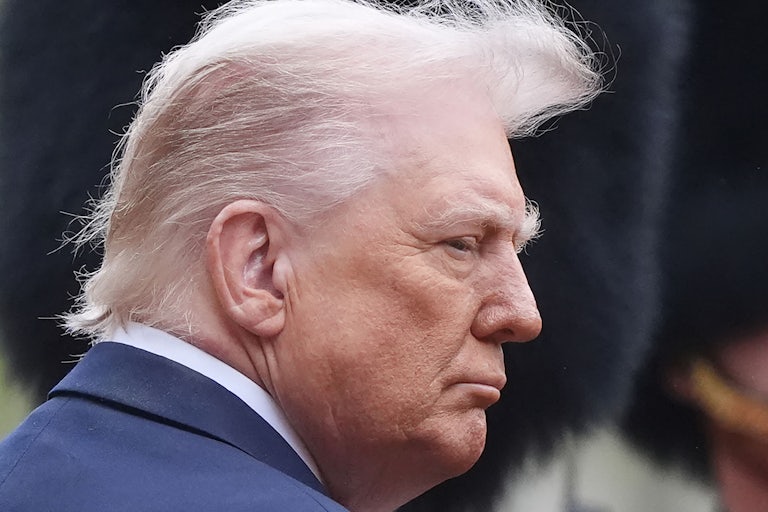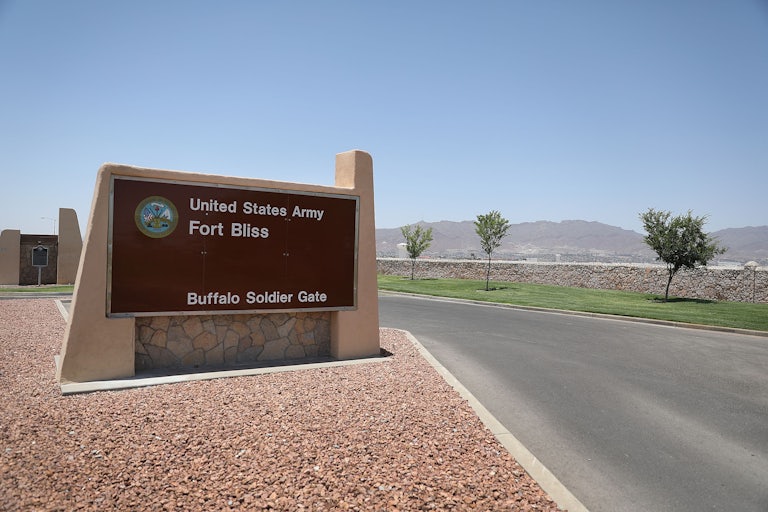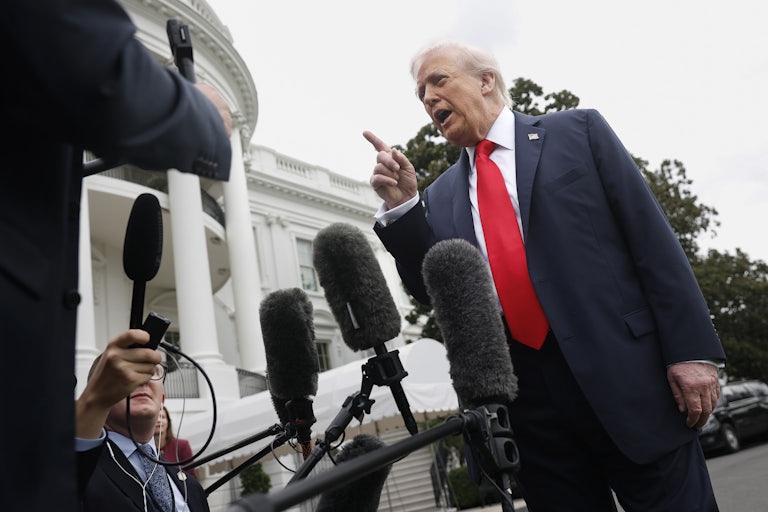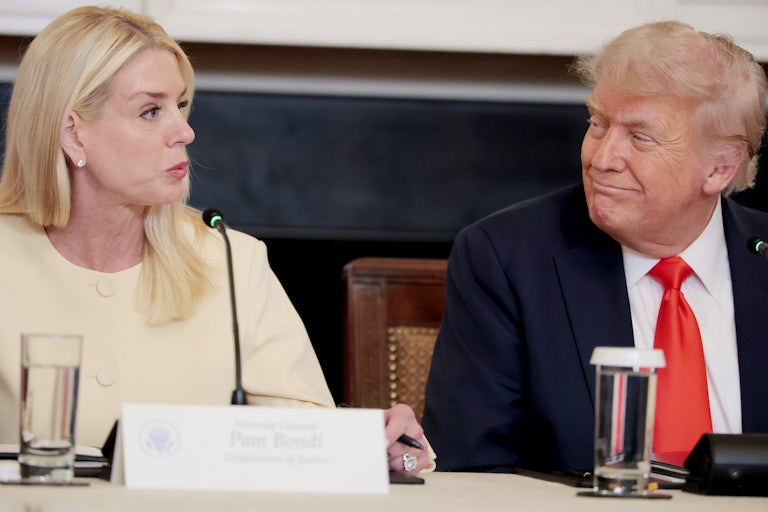ICE Just Destroyed U.S. Relations With South Korea
A raid on a Hyundai plant in Georgia has destabalized economic and political relations with a staunch ally.
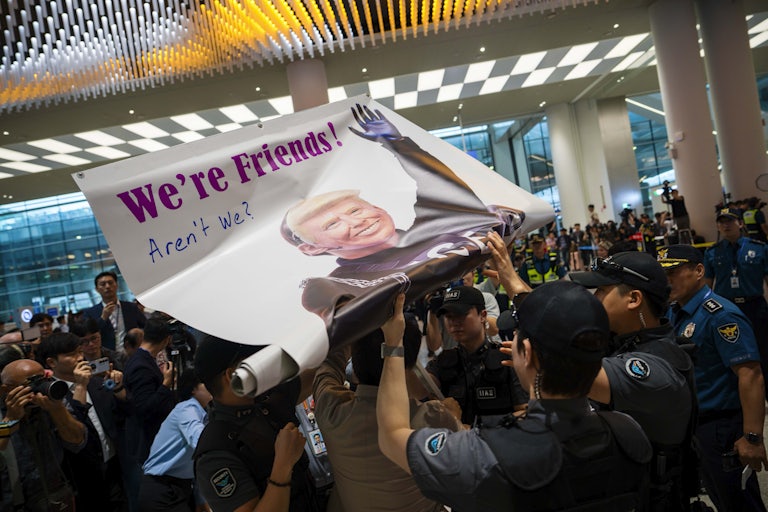
The immigration raid on the Hyundai plant in Georgia earlier this month, which saw more than 300 South Korean workers detained and, last week, flown back to Seoul, has proven to be an enduring, self-inflicted disaster by the Trump administration.
Reports of the harrowing conditions the workers experienced continue to emerge, as South Korea this week announced its intention to investigate human rights violations. “One by one, we were cuffed at the wrists, then chained at the waist and shackled at the ankles. Then we were put on the bus. I couldn’t understand why we were being treated this way,” one worker told the BBC for a Tuesday story.
The worker said the detention center was “very cold. We weren’t even given blankets for 2 days. I was wearing a short sleeve T-shirt, so I put my arms inside my clothes and wrapped myself in a towel to try to stay warm at night,” he said. “The worst part was the water. It smelt like sewage. We drank as little as possible.”
Meanwhile, the raid seems poised to inflict significant economic harm on the U.S. and the Peach State. Construction on the raided facility is reportedly paused until 2026. South Korean President Lee Jae Myung has warned that South Korean firms “will be very hesitant to make direct investments in the United States” in light of the incident—and indeed, several have already suspended U.S. projects.
President Trump, evidently feeling the heat, took to Truth Social on Sunday: “I don’t want to frighten off or disincentivize Investment into America by outside Countries or Companies,” he wrote. “We welcome them, we welcome their employees, and we are willing to proudly say we will learn from them.”
Much of the blame for the incident and its fallout belongs to White House Deputy Chief of Staff Stephen Miller, according to a Tuesday report in Forbes. Charles Kuck, an immigration lawyer representing several of the workers (who he says were in the U.S. on business visas and though a visa waiver program) told the publication that the arrests were “entirely driven” by Miller’s quota of 3,000 immigration arrests per day.
“ICE agents screwed up by arresting people who did not abuse the visa, were eligible to engage in the type of work for which they were admitted, but ICE considered it a successful operation because they met Miller’s quota,” Kuck said.


